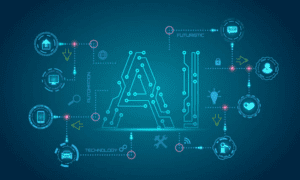Once considered a supplement to traditional education, online learning has evolved into a significant force in democratizing access to education globally. This transformative mode of learning is breaking down socioeconomic, geographical, and logistical barriers that have traditionally restricted access to quality education. Here’s how online education is creating a more inclusive learning environment.
Global Reach and Geographic Accessibility:
Online education eliminates geographical boundaries, enabling students from any location—whether urban centers or remote rural areas—to access diverse educational programs offered by institutions worldwide. This global accessibility is revolutionizing opportunities in regions previously limited by the availability of physical educational resources.
Flexibility for Diverse Learners:
Online learning’s flexibility caters to a broad audience, including parents, working professionals, and those with non-traditional work hours, allowing them to study at their own pace. Asynchronous courses enable students to access materials and engage in discussions on their own schedule, broadening education access across different lifestyles.
Cost-Effectiveness and Affordability:
Online education often costs less than traditional campus-based learning. Students save on commuting, housing, and other incidental expenses. Furthermore, the proliferation of Massive Open Online Courses (MOOCs) and open educational resources (OER) has made high-quality educational materials either free or more affordable.
Customized Learning Experiences:
Online platforms utilize adaptive learning technologies to meet individual learning needs and styles. Features such as personalized learning paths, interactive content, and immediate feedback create a tailored educational experience that accommodates learners’ diverse capabilities.
Inclusivity for Varied Backgrounds:
Online education levels the playing field for students of all ages, genders, and socioeconomic backgrounds. It provides access to high-quality courses for underrepresented groups, enables adult learners to continue their education, and accommodates those with physical disabilities by eliminating many traditional learning barriers.
Vocational Training and Skills Development:
Online platforms serve as key venues for vocational training and skill development, especially valuable in regions lacking access to physical training facilities or specialized courses. This helps bridge the gap between conventional education and evolving industry demands, enhancing career readiness and employability.
Language Accessibility and Localization:
Many online education platforms offer multilingual content and localized course versions to cater to cultural nuances and regional relevancies, making learning accessible not just linguistically but also contextually.
Diversity of Learning Resources:
The internet provides a plethora of digital resources, from interactive multimedia to virtual simulations, catering to various learning preferences and ensuring that students with different learning needs find materials that resonate with their unique learning styles.
Overcoming Physical Limitations:
For those with physical disabilities or health issues, online education removes many of the physical obstacles associated with traditional education settings. Assistive technologies enable access to educational content from home, further enhancing inclusivity.
Global Collaboration and Networking:
Online education facilitates global interaction and networking. Students can connect with peers, educators, and industry experts worldwide, fostering a diverse and global learning community that enriches the educational experience and prepares them for a globalized workforce.
Conclusion:
Online learning is effectively narrowing the educational accessibility gap, making high-quality education more of an attainable goal than a privilege. As technology continues to advance, online education will play a crucial role in ensuring comprehensive access to education for students from all walks of life.



